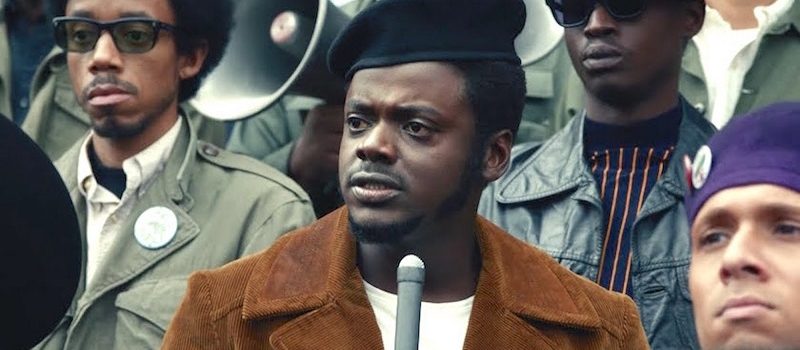There is something profoundly palpable about the rage that many characters feel throughout Judas and the Black Messiah. The fascinating thing—and the most surprising aspect of director Shaka King’s tour de force—is that even though folks have every reason to be angry and even spurred to feel the need for violence against their longtime oppressors, there is also an astonishing amount of love that permeates the film.
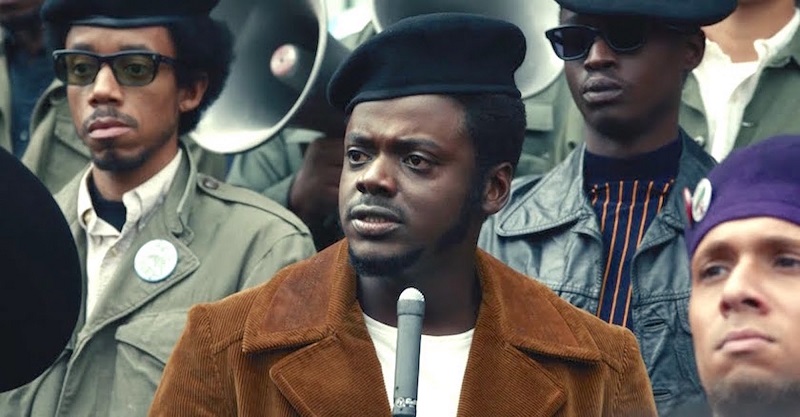
There is love for and from each soul that comprises the Black Panther Party of Illinois, a love story at the heart of this true tale, and love for a culture that has long been at the receiving end of an egregious amount of hate. It is a love that is worth fighting for and thus largely why the film packs such a penetrating punch to the gut of what it means to be a human being.
The film has an impeccable moniker and both individuals who comprise the movie’s title turn in performances that are utterly explosive.
The “Judas” here is Bill O’Neal (LaKeith Stanfield), an FBI informant who was pressured/pushed/manipulated into infiltrating the Panthers by Agent Roy Mitchell (Jesse Plemons). O’Neal was looking at jail time for a crime he did commit. When presented with the options for his future, he agreed that as Mitchell put it, the best thing he could do for himself and his country was to do his part to shut down this “terrorist organization” and those who lead it/inspire it, i.e., Fred Hampton, aka our titular “Messiah.”
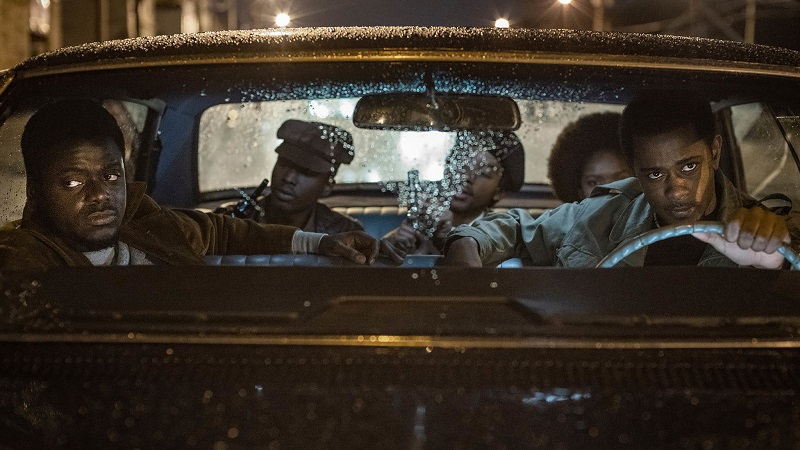
Hampton, played with blinding power by Daniel Kaluuya (Get Out, Widows), served as the leader of the Black Panther Party of Illinois out of their Chicago office. His speeches are powerful, while his actions are inspiring to tens of thousands.
Most importantly, Hampton had the potential to be a national leader of the movement to bring Civil Rights to millions who had been suffering at the hands of white America for four centuries. One can see why the FBI would consider him dangerous, or at least why J. Edgar Hoover (an almost unrecognizable Martin Sheen) did.
O’Neal and Hampton’s fateful collision course is the crux of Judas and the Black Messiah as the former manages to become the latter’s driver and over time, confidant.
You think you can see where this is going—don’t kid yourself.
In fact, there is nothing predictable about King’s stellar cinematic experience. There is a whole lot of internal conflict going on within O’Neal and as portrayed by Stanfield… it is intense. No one wants to be a so-called “Judas,” particularly a black man in the late 60s to his own people. Especially when O’Neal starts to feel like Pinocchio to Mitchell’s Geppetto.
One of the aspects of King’s film that is beautiful is the relationship that develops between Hampton and Deborah Johnson (Dominique Fishback). With the backdrop of calls for revolution and even some violent responses to police and “authority,” these two find each other. It’s not like it is portrayed romantically, this isn’t that movie. But what is captured by both actors—and King behind the camera—is not only a shared passion for fighting for the long-overdue rights for an entire race of people but a connection that transcends race, political affiliation and shows that no matter what… love finds a way (to paraphrase Jeff Goldblum in Jurassic Park).
Kaluuya puts on a firestorm of an acting clinic. His performance runs the gamut of the human emotive spectrum and embodies Hampton in such a way that we’re convinced that the Black Panther Party leader would be proud. It is clear that the actor took this role deeply personally. He knew the responsibility of portraying such a Civil Rights figure and was going to go where he had to go physically and mentally to ensure that justice was served for Hampton, especially since it could be argued that it was denied while he was still alive. Kaluuya humanizes a historical figure in such a way that we get a window into what specifically drives a man to devote his life to a cause, all while his having the fullest of hearts on many levels in his personal life.
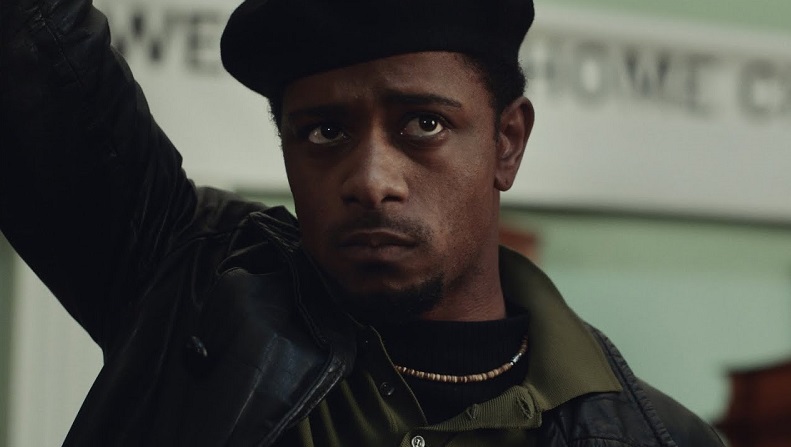
Meanwhile, Stanfield encapsulates so many who were pressured into making choices that they felt were out of their control. The Sorry to Bother You and Knives Out actor had his work cut out for him. He had to have a specific chemistry with Plemons and with Kaluuya, and a different, individualized one with everyone else in the Black Panther Party of Illinois.
This is an FBI informant who, as played by Stanfield, could easily stand shoulder-to-shoulder with the anyone in the movement and it would be believable—because it was. What he discovered, and King captured so brilliantly in his movie, was how much community work the Black Panther Party did, bringing help to those who need it most. He must have been unbelievably conflicted and as Stanfield plays him, it is piercingly clear.
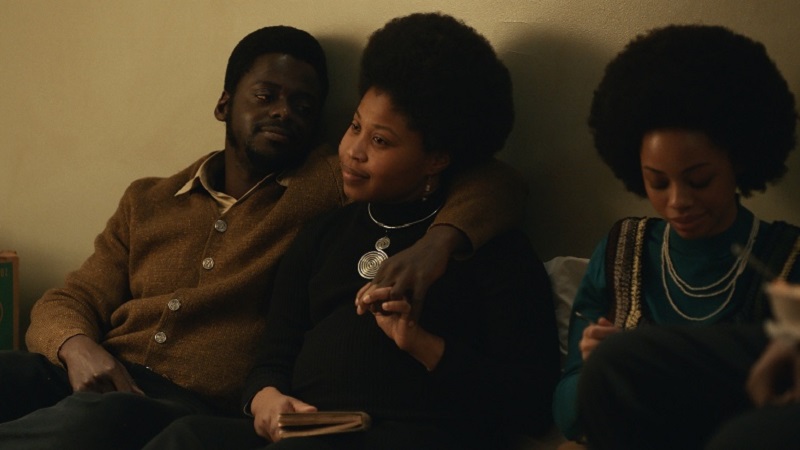
The fury portrayed by those onscreen will be shared by those witnessing King’s film, perhaps even to the point where viewers are inspired to take action. That right there is why this film is so timely. Tackling systematic racism is high up on the agenda of the newly sworn-in Biden Administration after a summer that saw a Black Lives Matter movement catch fire across the country. Even though Black Messiah is a period piece and takes place decades ago, clearly the issues those Black Panther Party members were fighting for are still largely unresolved.
Grade: A

